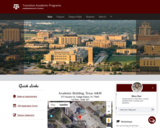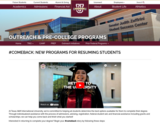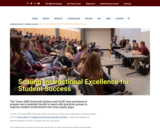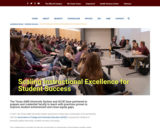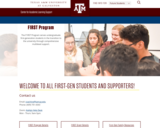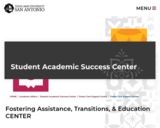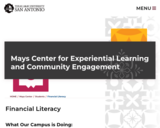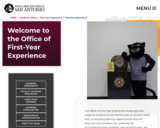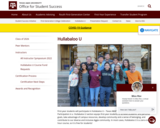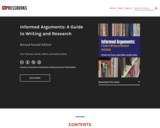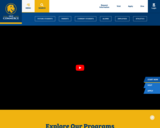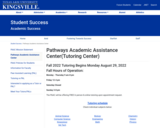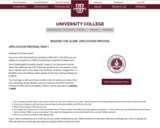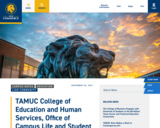The Office of First-Year Experience (FYE) challenges and supports students across the first year to connect them with outstanding learning opportunities that help with the transition into university life and achieving both academic and personal goals. We offer guidance, advice, and support as students navigate their college experience on our campus. Through programs, resources, and services, we provide opportunities and information students need to help them meet fellow Jaguars and to view Texas A&M-San Antonio as home.
We promote a student-centered environment that supports all students during their transitions to discover, engage, and connect at A&M-San Antonio and we aspire to:
• Encourage students to be self-directed learners through a strengths-based mindset;
• Actively challenge students on a path of self-discovery to become lifelong learners;
• Foster an environment that allows students to cut across traditional boundaries and viewpoints through dialogue and innovative learning opportunities;
• Cultivate a foundation for student persistence through intentional and transformative experiences that support students’ personal growth and development.
The core values of the Office of First-Year Experience are:
• Discover: To provide pathways for students to discover success, a sense of self, and a healthy sense of adventure.
• Engage: To encourage students to become active participants in their journey through higher education by engaging in the learning process and participating in dialogue that pushes them out of their comfort zone.
• Connect: To connect students, through meaningful experiences, to the university and broader community.
Our program components consist of the following:
• First-Year Seminar (FYS): this is a three-credit hour, success seminar designed to help students discover their place on campus, in society, within their discipline, and their career. Each course also has an assigned peer leader who collaborates and provide instructional support alongside the instructor, plan/present curriculum and instructional activities, coordinate and assist with the planning of events/programs and have one-on-one personalized mentorship meetings with students.
• Learning Communities (LC): 2-4 linked courses that allow participants to partake in exclusive activities created to enhance their learning experience at A&M-San Antonio. We have major specific, themed and traditional communities. The faculty in each LC, team up to build connections amongst the linked courses through shared assignments and activities.
• Common Experience: This is a yearlong initiative designed to cultivate a common intellectual conversation on a theme and facilitate increased interactions among faculty, staff, and students. It provide participants an opportunity to deconstruct and explore a common subject through multidisciplinary lenses and apply academic thought towards finding meaningful solutions to discovered challenges. Throughout the year, various events and programs provide opportunities for engagement for the entire university community and beyond.
• Faculty Advising Program: We pair select first-year students with a faculty mentor who will be available to them throughout their entire first year on campus. Faculty are assigned four students each and are given $200 per mentee to be able to attend group mentoring social events either on- or off-campus.
DELIVERY FORMAT: The program has a hybrid format.
PROGRAM SCALE: Large-scale (reaches more than 25 percent of its intended target population)
APPROXIMATE PARTICIPANTS SERVED IN 2021-22: 950
HOW TO ENROLL: All stakeholders have access to this program. As such, there is no enrollment process
EVALUATION STATUS: Data related to program outcomes are currently being internally collected
DEPARTMENT(S) OVERSEEING PROGRAM: First-Year Experience
CONTACT FOR MORE INFO: Heather Olague at hmolague@tamusa.edu or 210-784-1399
